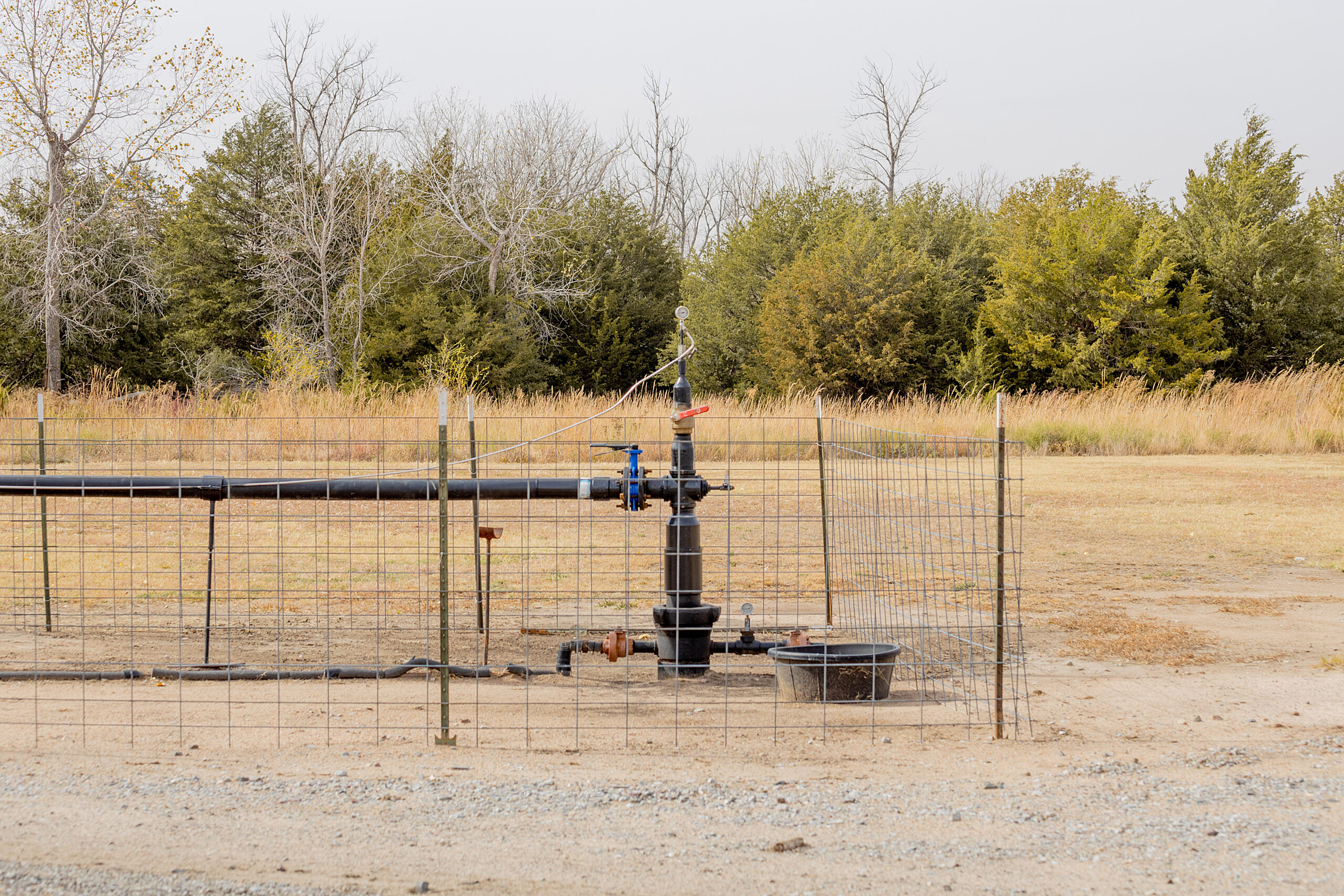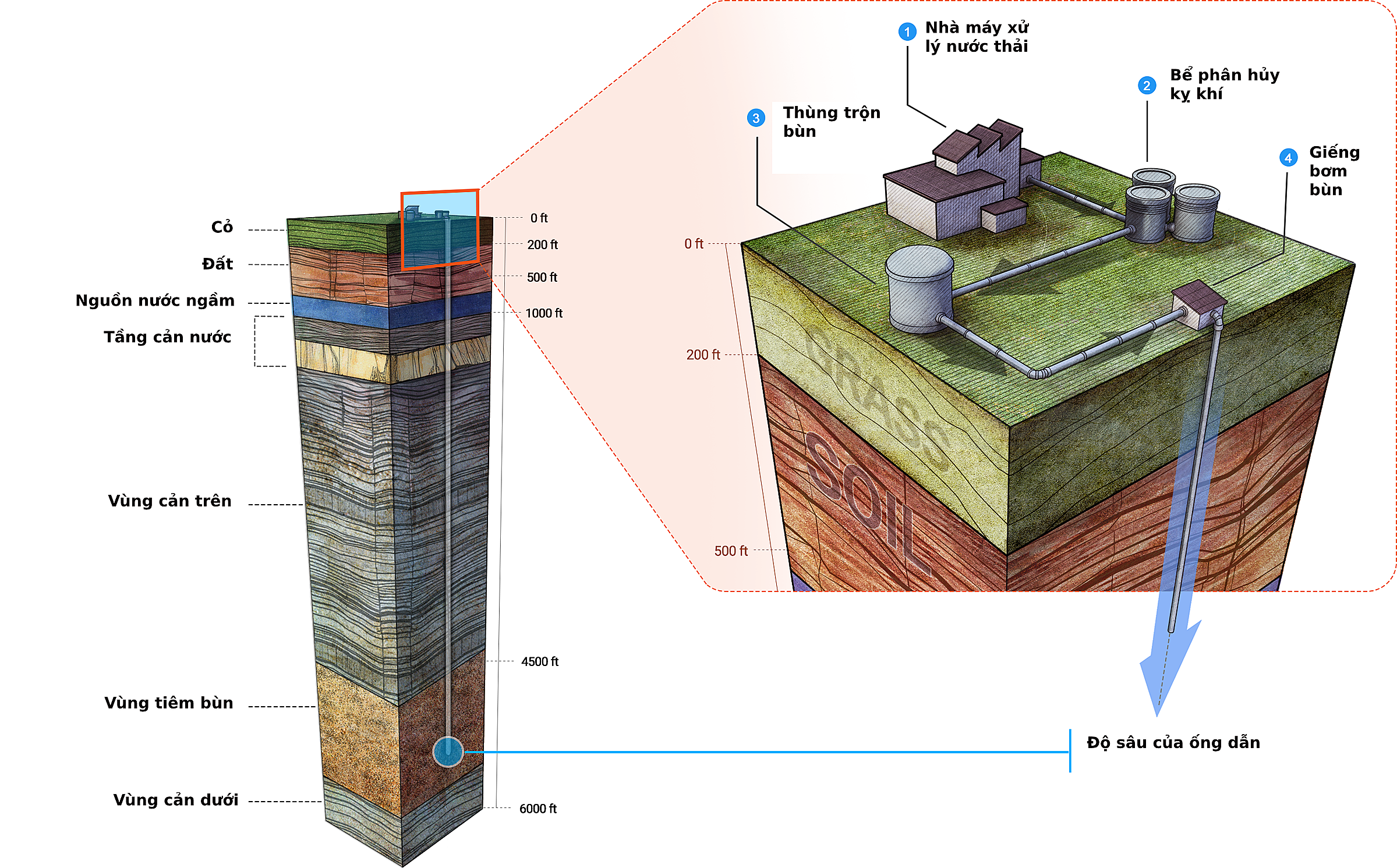Last week, Microsoft partnered with Vaulted Deep to eliminate 4.9 million metric tons of carbon dioxide equivalent (CO2e) over 12 years. Several international news outlets jokingly referred to this as "manure credits" because Vaulted Deep specializes in pumping manure and organic waste from US cities deep underground.
 |
Part of the underground waste disposal facility in Kansas. Photo: Vaulted Deep |
Part of the underground waste disposal facility in Kansas. Photo: Vaulted Deep
Vaulted Deep is an emerging startup in the carbon dioxide removal (CDR) credit market. By injecting organic waste 6,000 feet (almost 2,000 meters) underground, the company addresses waste management challenges in the US while also generating and selling carbon credits for preventing the release of CO2e.
Carbon credits are tradable permits or certificates, representing the right to emit one metric ton of CO2 or another greenhouse gas.
The US generates approximately 200 million tons of organic waste annually, including food scraps, yard waste, paper waste, and manure. Only one-third of this waste is composted or converted into energy; the rest ends up in landfills.
While credits from forests or biochar help absorb CO2, credits from organic waste also prevent the release of methane (CH4), a super-pollutant 25 times more potent than CO2 in terms of global warming potential. Eliminating one ton of CH4 is equivalent to eliminating 25 tons of CO2.
With Vaulted Deep's process, collected manure, sewage sludge, and organic waste from urban and agricultural activities are anaerobically digested (without oxygen) and mixed with treated wastewater to form a slurry. This mixture is then injected deep underground through cement-reinforced pipes.
The slurry is injected into basalt rock formations, where it slowly decomposes. This process creates carbonate minerals, trapping carbon for millennia.
 |
A diagram of the underground waste disposal technology. Source: Vaulted Deep |
A diagram of the underground waste disposal technology. Source: Vaulted Deep
This technology, known as slurry injection, has been used in the oil and gas industry since the 1980s for managing oilfield waste.
Vaulted Deep's geological disposal wells are currently located in California and Kansas, with state permits. In California, the company has processed about 20% of Los Angeles' bio-solid waste for over 15 years. In Kansas, they manage 75% of the bio-solid waste for the city of Derby. They also partner with local farmers to process excess manure, which often causes odor issues and nutrient runoff.
This carbon removal method is verified by the carbon registry Isometric. To date, Vaulted Deep has disposed of over 69,000 tons of organic waste, sequestering nearly 18,000 tons of CO2. For every ton of CO2 sequestered, they emit 0.05 tons, considered one of the best ratios in the carbon removal sector.
The agreement with Microsoft will allow Vaulted Deep to expand its network of agricultural, urban, and industrial waste suppliers. While the price of the carbon credits wasn't disclosed, it's estimated to be around 350 USD per credit, the average for a CDR credit. At this price, Vaulted Deep is projected to earn over 1.7 billion USD from the deal.
The most expensive type of CDR credit is from direct air capture (DAC), costing over 500 USD per tCO2e. Other less expensive types include bioenergy with carbon capture and storage (350 USD) and biochar (over 100 USD).
Microsoft is actively purchasing CDR credits to achieve its goal of becoming carbon negative by 2030. In 2024, the company signed long-term contracts for nearly 22 million CDR credits, exceeding the total from all previous years combined, as its emissions rise due to energy-intensive AI operations. Their CDR credit purchases encompass various technologies, including biochar, DAC, soil carbon sequestration, and bioenergy with carbon capture and storage (BECCS).
Bao Bao (according to Carbon Credits, Vaulted Deep)












